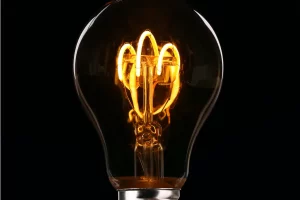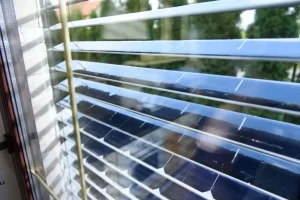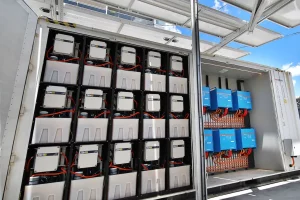Solar panels have become increasingly popular for residential use, allowing homeowners to generate clean energy and reduce their carbon footprint.
However, the intermittent nature of solar power presents a challenge—how to store surplus energy for use during cloudy periods or at night? This is where lithium iron phosphate (LiFePO4) batteries come into play, revolutionizing home energy storage systems.
LiFePO4 batteries have gained considerable attention in recent years due to their unique properties and numerous advantages. These advanced batteries provide a reliable and efficient solution for homeowners seeking to maximize the benefits of their solar power installations. By capturing excess solar energy and storing it for later use, LiFePO4 batteries enable households to become more self-sufficient, reduce dependence on the grid, and unlock the full potential of solar energy.
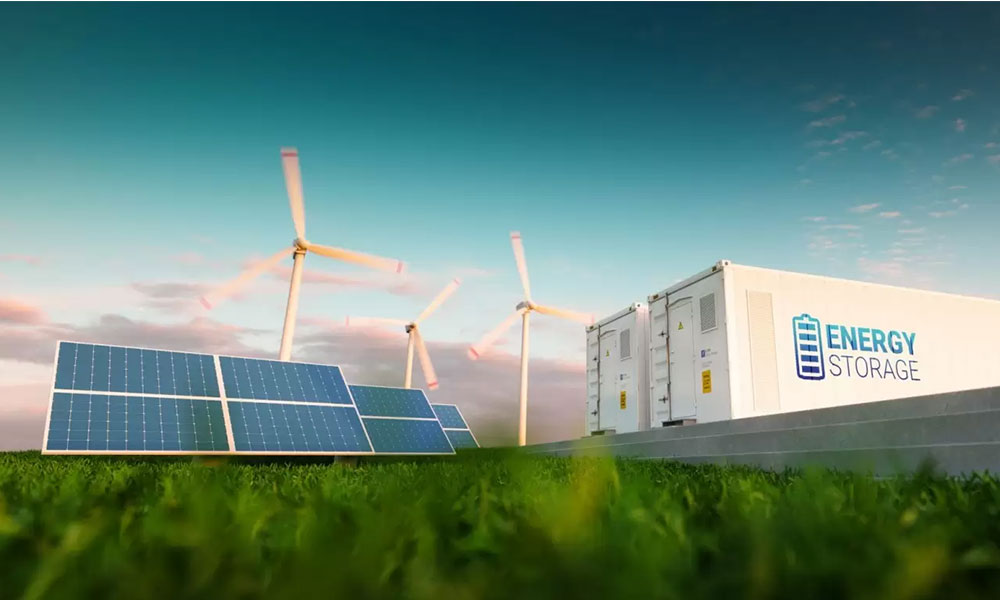
In this article, we will explore LiFePO4 batteries application in residential electricity storage systems – advantages they offer over other battery chemistries, their ability to seamlessly integrate with solar panels, and the economic and environmental benefits they bring to homeowners.
What are advantages of using lithium iron phosphate batteries
Lithium iron phosphate (LiFePO4) batteries have several advantages compared to other types of lithium-ion batteries. Here are some of the main advantages.
LiFePO4 batteries have high charge and discharge efficiency, which means they can effectively store and release energy from solar panels. This helps maximize the overall efficiency of the solar energy system.
Solar energy storage systems require batteries that can withstand frequent charge and discharge cycles. LiFePO4 batteries have a long cycle life, typically ranging from 2,000 to 5,000 cycles or more, depending on the specific battery model and usage patterns. This ensures that the batteries can last for many years in a solar energy storage application.
LiFePO4 batteries can provide high power output, allowing them to handle the demands of solar energy systems. They can efficiently deliver the energy stored during the day when it is needed, such as during the evening or during periods of high energy consumption.
Safety is a crucial consideration for solar energy storage systems, especially when dealing with large amounts of energy. LiFePO4 batteries are known for their excellent safety characteristics, including high thermal stability and resistance to thermal runaway. This makes them a reliable and secure choice for solar energy storage applications.
Solar energy systems are exposed to varying temperatures throughout the year. LiFePO4 batteries can operate effectively across a wide temperature range, ensuring that they can perform optimally even in extreme weather conditions.
LiFePO4 batteries can be easily scaled to meet the energy storage requirements of different solar installations. Whether it’s a small residential system or a large-scale commercial or utility-scale project, LiFePO4 batteries can be configured in parallel or series to provide the desired storage capacity.
LiFePO4 batteries generally require less maintenance compared to other battery chemistries. They have a lower self-discharge rate, reducing the need for frequent recharging when not in use. Additionally, LiFePO4 batteries have a simpler charging algorithm, making them easier to manage and integrate into solar energy storage systems.
Due to these advantages, LiFePO4 batteries have gained popularity in the solar energy industry and are widely used for both off-grid and grid-tied solar energy storage applications.
What are disadvantages of lithium iron phosphate batteries for solar power Energy storage
While lithium iron phosphate (LiFePO4) batteries offer many advantages for solar power storage, there are a few disadvantages to consider:
- Lower energy density. LiFePO4 batteries have a lower energy density compared to some other lithium-ion battery chemistries. This means they have a lower capacity to store energy per unit of volume or weight. As a result, LiFePO4 batteries may require more physical space or larger battery banks to achieve the desired energy storage capacity.
- Higher cost. LiFePO4 batteries tend to be more expensive compared to other lithium-ion battery chemistries. The cost of LiFePO4 battery technology has been gradually decreasing, but they still generally have a higher upfront cost. This can impact the overall economics of a solar power system, especially for large-scale installations.
- Limited voltage range. LiFePO4 batteries typically have a lower nominal voltage compared to other lithium-ion chemistries. This can result in higher system complexity and additional components, such as DC-DC converters or voltage converters, to achieve compatibility with the desired voltage requirements of the solar power system.
- Limited availability. While LiFePO4 batteries are becoming increasingly popular, their availability may be more limited compared to other lithium-ion chemistries. This could affect the ease of sourcing and obtaining LiFePO4 batteries, especially in certain regions or for specific project sizes.
- Lower energy discharge rate. LiFePO4 batteries may have a lower maximum energy discharge rate compared to some other lithium-ion chemistries. This means they may not be as suitable for applications that require very high power output over short periods, such as certain high-power solar systems or energy storage systems with demanding load profiles.
Which companies make lithium iron phosphate batteries
Several companies manufacture lithium iron phosphate (LiFePO4) batteries. Here are some well-known companies that produce the batteries:
BYD Company Ltd.

BYD is a Chinese company that specializes in manufacturing rechargeable batteries, including LiFePO4 batteries. They offer LiFePO4 batteries for various applications, including electric vehicles, energy storage systems, and solar power systems.
CATL (Contemporary Amperex Technology Co. Ltd.)

CATL is a leading Chinese battery manufacturer known for producing a wide range of lithium-ion batteries, including LiFePO4 batteries. They supply batteries to various industries, including electric vehicles and energy storage.
CALB (China Aviation Lithium Battery Co. Ltd.)

CALB is a Chinese company that focuses on the development and production of advanced lithium-ion batteries, including LiFePO4 batteries. They provide batteries for electric vehicles, solar power systems, and other energy storage applications.
Winston Battery Ltd.

Winston Battery is a Chinese company specializing in the production of LiFePO4 batteries. They offer LiFePO4 batteries with different capacities and voltages for applications such as solar power systems, electric vehicles, and marine applications.
Relion Battery

Relion Battery is a company based in the United States that manufactures LiFePO4 batteries for various applications, including solar power systems, RVs, marine applications, and off-grid power systems.
SimpliPhi Power
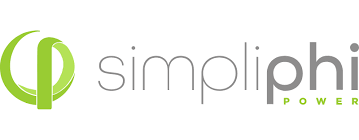
SimpliPhi Power, based in the United States, produces lithium iron phosphate batteries specifically for energy storage applications. They offer LiFePO4 batteries in different sizes and configurations suitable for residential, commercial, and industrial use.
These are just a few examples of companies that produce LiFePO4 batteries.
Conclusion
Lithium iron phosphate (LiFePO4) batteries have emerged as a game-changer in the realm of residential electricity storage from solar power. These advanced batteries offer homeowners the opportunity to maximize the benefits of their solar energy systems by efficiently storing surplus energy for use during periods of low or no sunlight.
The advantages of LiFePO4 batteries, including their safety, long cycle life, high power output, and environmental friendliness, make them an ideal choice for home energy storage.
